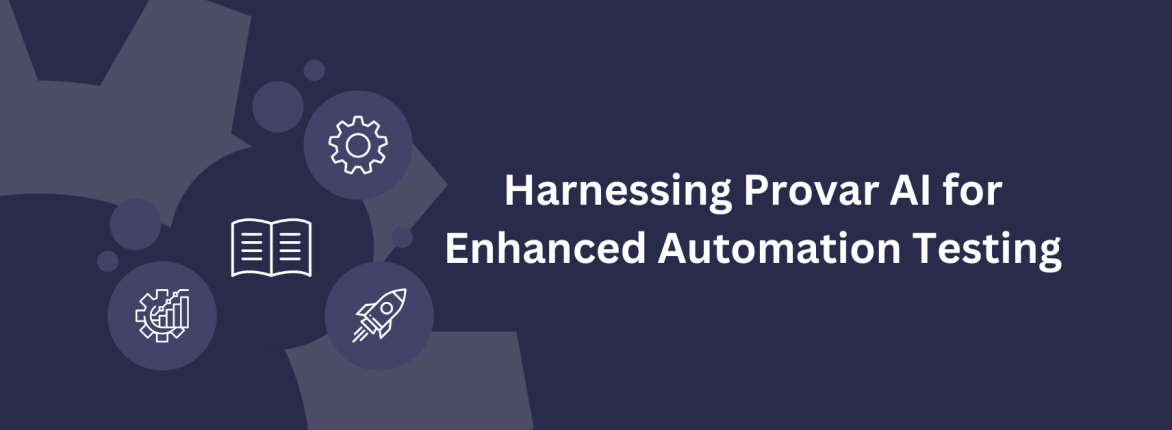This is the first blog in a two-part series that breaks down the basics of Salesforce testing. In this blog, we’ll discuss what “testing for Salesforce” means and why it is essential for maintaining quality across your ecosystem. The following blog will discuss manual and automated testing and the benefits of both testing approaches.
Here at Provar, things move fast. Fast innovations from us. We make things that save time. Because we love being efficient, we’re always developing new ways to help businesses where they need quality the most. However, we honor our foundation, which was built on creating the best Salesforce environment possible.
In this two-part blog series, we’ll return to the basics—tackling Salesforce testing, its benefits, and the ins and outs of manual versus automated testing.
What Does “Testing for Salesforce” Even Mean?
Salesforce is a widely used customer relationship management (CRM) platform. It is robust and versatile. As with other web-based software, organizations must test Salesforce and its associated applications for breaks, bugs, and other vulnerabilities often—at the very least, whenever a new customization, configuration, or update is made. Testing ensures the Salesforce platform works as intended and provides a smooth, safe, and secure user experience.
When organizations test their Salesforce ecosystem, they typically perform a series of tests that evaluate and validate the functionality, performance, and security of the Salesforce platform and its related applications. There are several types of Salesforce testing: functional testing, integration/API testing, load and performance testing, User Acceptance Testing (UAT), and security testing.
Testing for Salesforce is essential to maintaining quality. It allows organizations to find and fix minor issues before they become significant.
Why is Testing for Salesforce Important?
Because Salesforce is committed to providing its customers with the most up-to-date, robust platform possible, it releases regular updates. However, any change within a CRM can break apps using the platform, negatively impacting its performance, reliability, and security.
Testing for Salesforce is vital to mitigate risk with these updates and instill the trust that your apps will always work as they should.
Benefits of Testing Salesforce
Improved Performance and Reduced Cost
Organizations that regularly test their Salesforce ecosystem can more easily identify performance issues, allowing their teams to optimize their operations for speed, scale, and reliability. By testing Salesforce and its applications, organizations can ensure that their systems maintain optimum performance with minimum interruptions as their user base and business grows.
Regular and rigorous Salesforce testing can also reduce costs. Organizations can reduce rework and avoid costly inefficiencies by identifying and addressing issues early.
Enhanced Quality and Reliability
Testing helps organizations identify issues across the Salesforce ecosystem before they affect end-users. By finding and fixing issues earlier, teams can maintain quality throughout the lifecycle, ensuring that Salesforce functions correctly, provides accurate information, and delivers intuitive and effortless user experiences.
Ensured Security and Compliance
Salesforce often manages confidential business data, including customer data, personal information, sales numbers, marketing metrics, etc. Organizations that test Salesforce regularly can identify vulnerabilities and security threats and keep this information secure. Salesforce testing also allows organizations to implement security measures specific to their business to protect their data and prevent security breaches.
In addition to keeping confidential data secure, testing Salesforce can help organizations ensure that their systems comply with the relevant industry regulations and avoid costly fines and negative impacts on their credibility.
Conclusion
Salesforce testing is essential to the success of organizations that rely on it for their day-to-day operations. But finding a trusted partner for Salesforce testing can be tricky and time-consuming.
Provar’s quality hub of testing products helps organize, manage, automate, and scale your organization’s testing in Salesforce and beyond. Our robust suite of solutions is designed to meet users at every stage of their quality journey, and we have been a leader in Salesforce testing innovation since 2014.
Interested in learning more about Provar’s robust suite of Salesforce testing solutions? Connect with us today!










